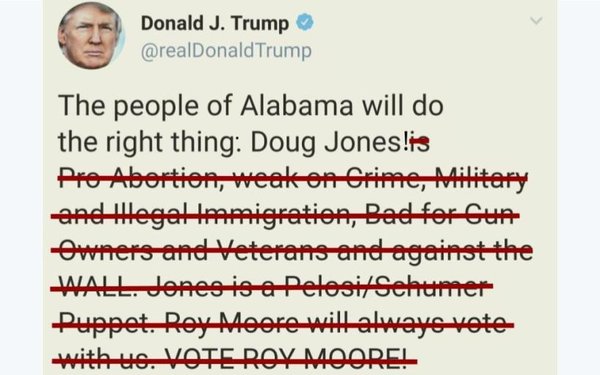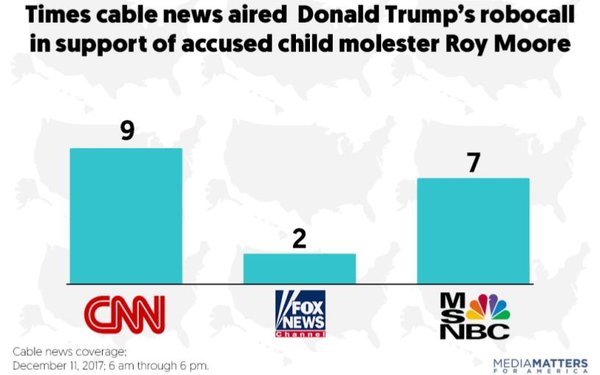
We may never know the role paid media played in the outcome of
Alabama’s Senate race, but we do know it likely was one of the most media-contested races of its kind ever when you add up the total media effect.
That includes news media coverage,
social media sharing, and a variety of below-the-line guerilla-marketing tactics.
We also now know what the power of Presidential endorsement is.
If anything, it could well
have had the opposite effect, given Donald Trump’s flip-flopping from Luther Strange during the primary race and his initially tepid -- then all-in -- endorsement of Roy Moore.
Trump’s robo-calls, in particular, are noteworthy. And not just because of the grassroots impact they may have had on voters receiving those calls in the market, but from the humongous
news coverage surrounding the tactic.
advertisement
advertisement
According to a Media Matters analysis, the major cable news networks ran stories about the robo-calls 18 times during a 12-hour window the day
before the election.
“In effect, they were giving a wider audience to a major political ad for Moore,” Media Matters concluded in a blog posting late Monday night.

On the flip side, we may not know what effect the
endorsements of other celebrities -- native Alabamans like Charles Barkley, or even Hollywood’s elite, or President Obama's robo-calls had. What we do know is that in terms of measured media
spending, Democratic winner Doug Jones outspent Moore 10-to-one, and in the end, he won.